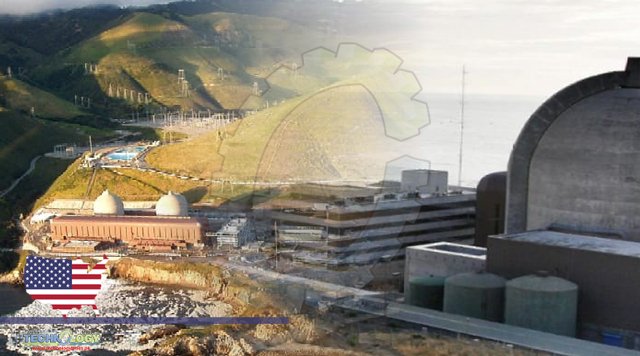Once shunned by many Democrats and environmentalists warm, nuclear power is gaining acceptance among the party and activists as a clean alternative to fossil fuels, amid soaring energy costs and a sluggish transition to renewables.

Proponents argue that the carbon-free energy source is clean, affordable, can be generated around the clock and is already prevalent, giving it a leg up over wind and solar, which are intermittent and hamstrung by limited battery storage capabilities. “There’s been a slow progression, but sufficient modeling that has been done has convinced a lot of people in the environmental community, certainly around the importance of preserving the existing fleet,” said Doug Vine of the nonpartisan Center for Climate and Energy Solutions. environmentalists warm, “There’s a recognition of not wanting to backslide on emissions reductions.” Evidence of the changing tune among climate hawks is prevalent. Democrats pumped billions of dollars into nuclear tax incentives in their recently approved tax-and-climate spending law, the latest show of support by the party. Included were production credits for existing facilities, and incentives to create smaller reactors that are more affordable, quicker to build, safer to operate, and which last upwards of six decades. As part of last year’s bipartisan infrastructure law, $6 billion was allocated toward the country’s aging fleet of nuclear facilities. The Department of Energy’s top nuclear official, Kathryn Huff, told the Washington Examiner this week that the Biden administration is also focused on boosting domestic uranium enrichment vital for nuclear energy in an effort to rely less on Russia, a major supplier of global uranium.
California and its Democratic leaders have reversed course and are now scrambling to keep its lone nuclear plant operational, fearing the previously scheduled closure of the Diablo Canyon facility could result in power shortages for years. In a recent op-ed in The Sacramento Bee titled “Why I changed my mind about California’s Diablo Canyon nuclear plant,” Sen. Dianne Feinstein of California argued the state “must consider every measure to counter the coming onslaught” of natural disasters. “If California is to lead the clean energy transition, as state law mandates, Diablo must keep operating, at least for the time being,” the Democrat wrote. Public sentiment has shifted slightly on nuclear power, though the country remains largely split. environmentalists warm, A Pew Research poll from May 2021 showed that 47% opposed expanding nuclear energy. A Pew survey from January of this year showed just 26% opposed while an increasing number, 37%, struck a neutral stance. The U.S. had 54 nuclear plants, home to 92 reactors, operating in 28 states as of May, with the average plant age of 40 years, according to the U.S. Energy Information Administration. Since 1990, nuclear power has accounted for about 20% of the country’s annual electricity production and makes up roughly half of all carbon-free electricity. But over the last eight years, the U.S. has lost more than 10 gigawatts of nuclear power from 13 reactors, or the ability to power more than five million homes with zero emissions, according to Mr. Vine of the Center for Climate and Energy Solutions. Doug True, vice president and chief nuclear officer of the Nuclear Energy Institute, said the incentives in Democrats’ tax and climate spending bill, dubbed the Inflation Reduction Act, will put “nuclear on the same level playing field as renewables.”
“Nuclear is one of those tools that can provide reliable power 24/7-365, as we’ve demonstrated over the last 50 years in a way that even renewables and storage would have difficulty,” he said during a recent event hosted by the U.S. Energy Association. The fresh look at nuclear energy extends far beyond America’s borders, particularly in countries reliant on oil and natural gas imports that want to become more energy independent. Japanese Prime Minister Fumio Kishida directed his government Wednesday to begin the process of building new, smaller and safer nuclear reactors to meet its energy needs and its 2050 carbon-neutral deadline. The move marked a sharp reversal for the country, environmentalists warm, which shuttered many of its plants following the 2011 Fukushima nuclear disaster and previously said it would focus only on restarting them. South Korea reversed plans to phase out nuclear plants earlier this year, and the United Kingdom wants to make it a pillar of its energy strategy, with Prime Minister Boris Johnson recently greenlighting a new multibillion-pound plant. There are still plenty of environmentalists who oppose nuclear power for multiple reasons, including costs, safety and hazardous-waste disposal. Greenpeace International considers nuclear energy “dirty, dangerous and expensive.” environmentalists warm, The Natural Resources Defense Council, which has a “Nuclear Power 101” page devoted to explaining “how its costs outweigh its benefits,” is advocating against saving California’s Diablo Canyon plant.n“Late August in Sacramento is notorious for ill-considered proposals that could never survive rigorous analysis or inclusive public review and are never seen again,” Ralph Cavanagh, co-director of the NRDC’s energy program, wrote in a recent Los Angeles Times op-ed. “This one should be soundly rejected.” Russia’s war against Ukraine has also renewed debates and concerns about the energy source. Moscow’s shelling and takeover of some of the sovereign nation’s nuclear plants, actions which experts have characterized as incredibly irresponsible and dangerous, have prompted fears of another Chernobyl catastrophe. “You can’t design anything for war,” said Bud Albright, president and CEO of the U.S. Nuclear Industry Council, during the U.S. Energy Association event. “If you’re at war, bombs falling, you don’t design architecture for that, whether it’s a power plant or buildings.”
Source: This news is originally published by washingtontimes